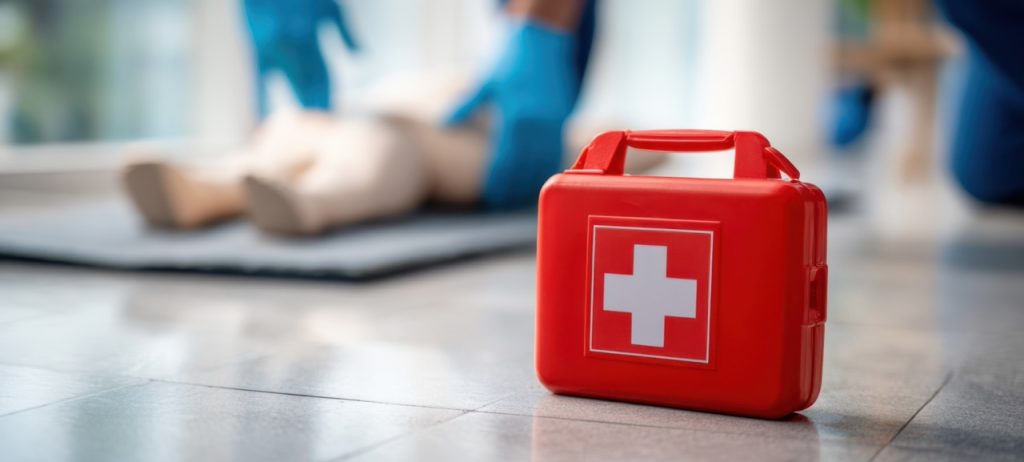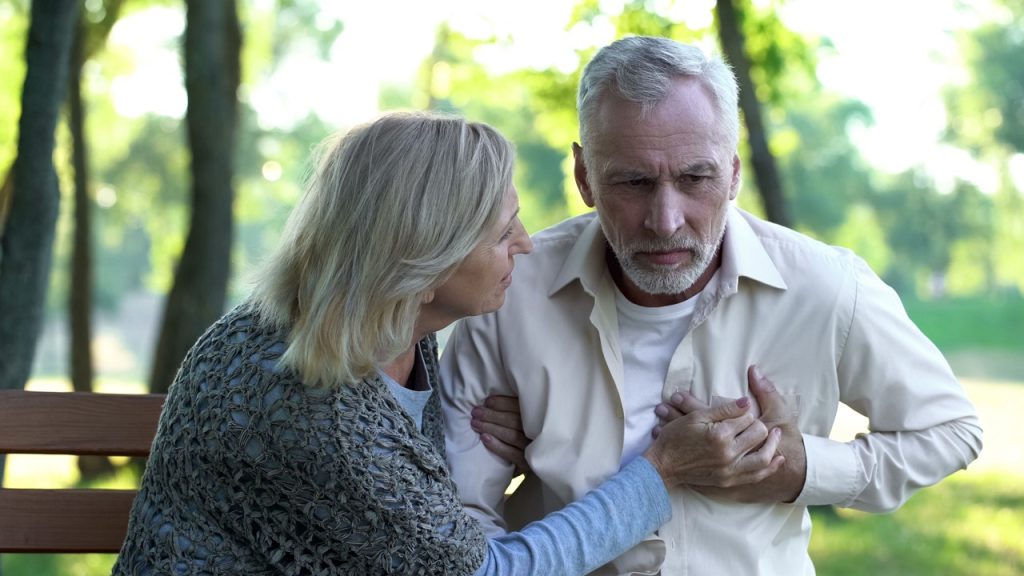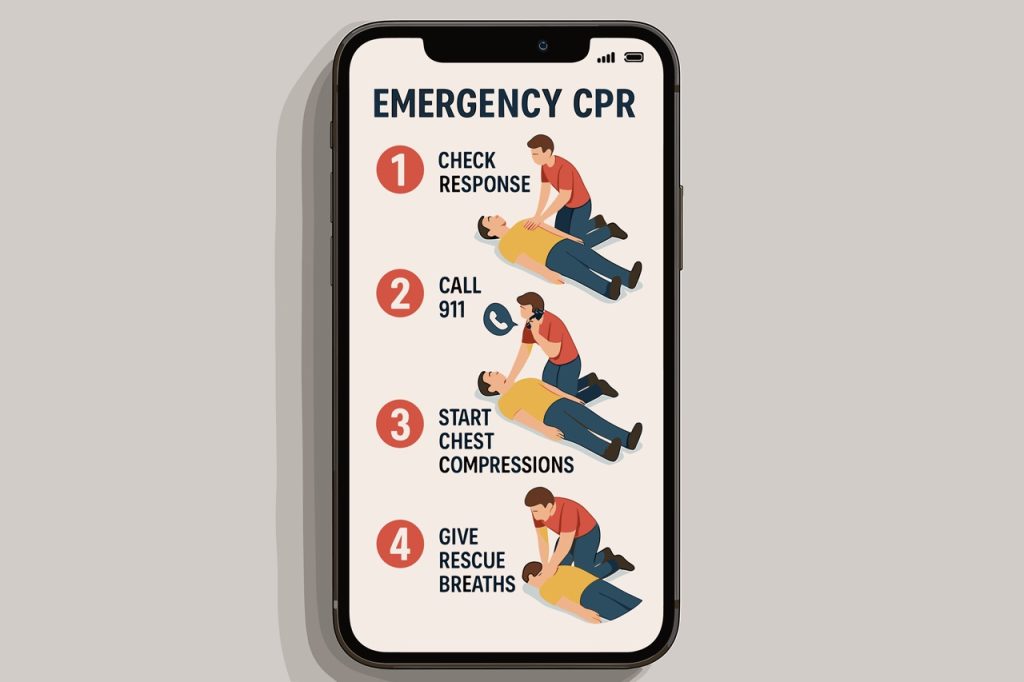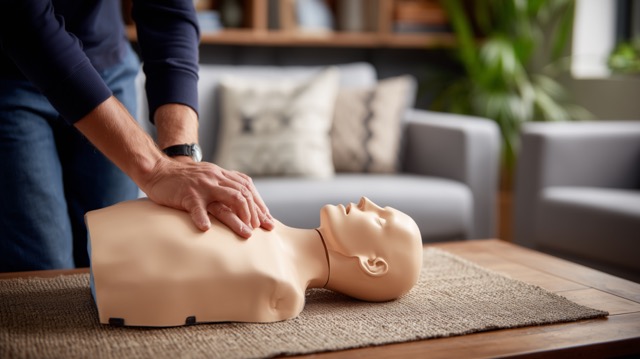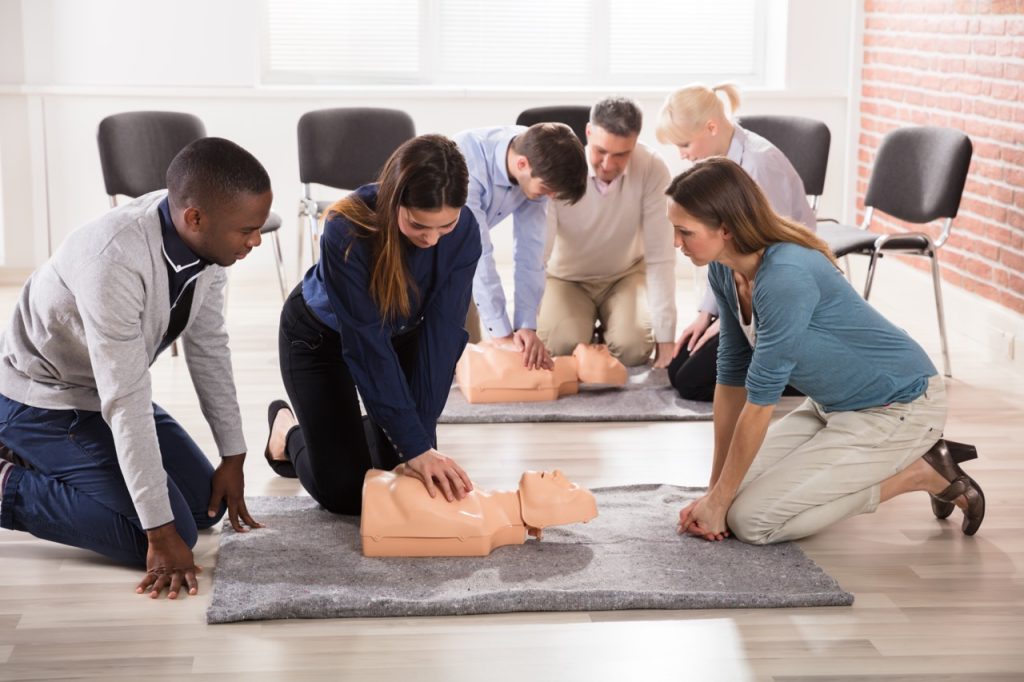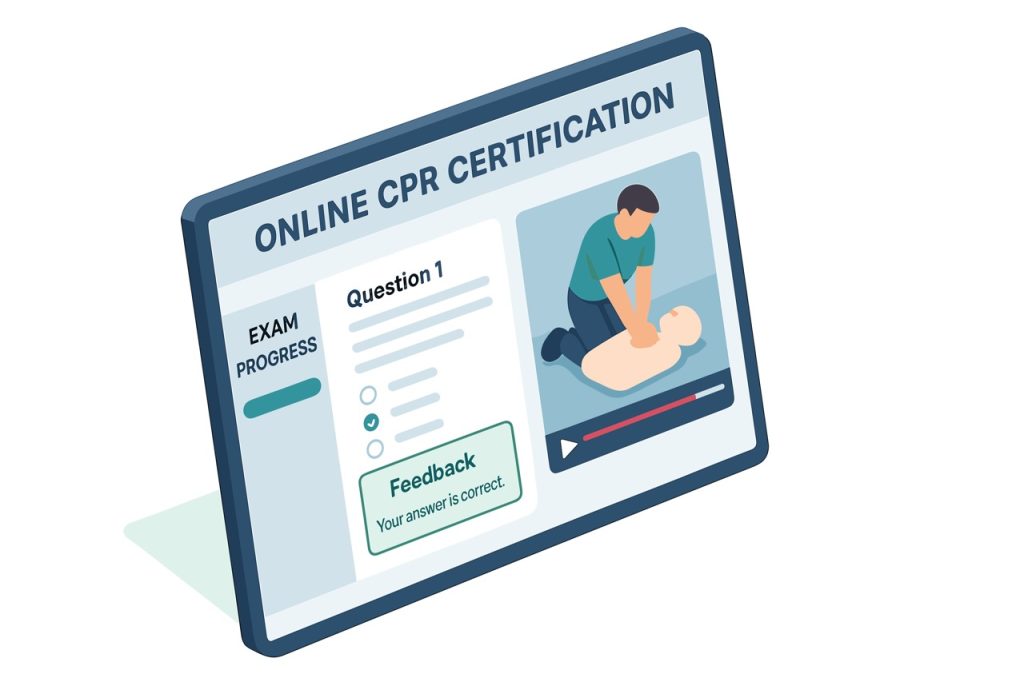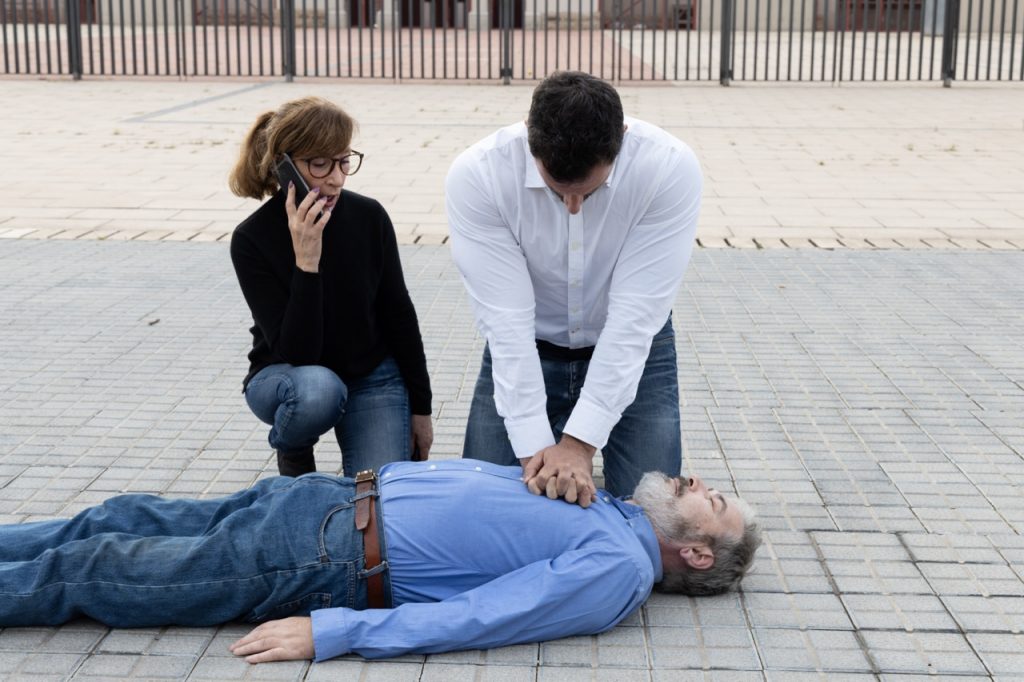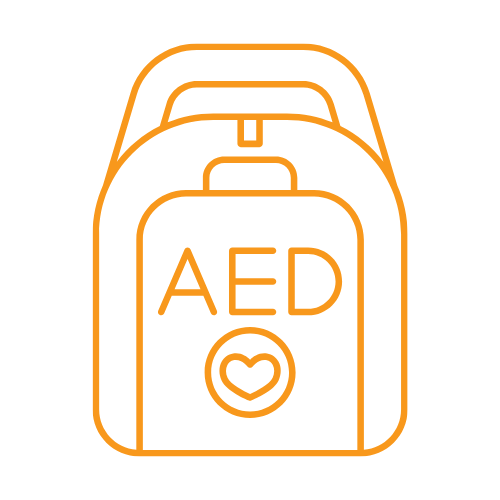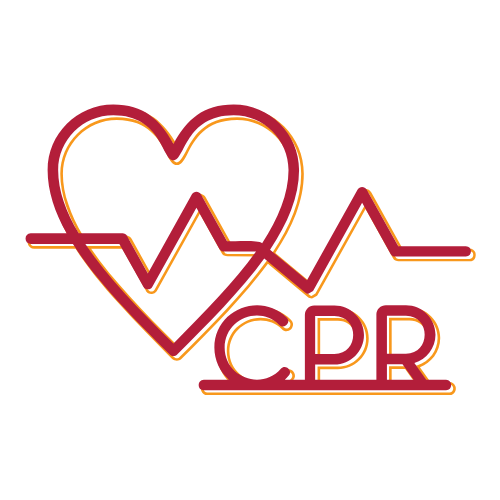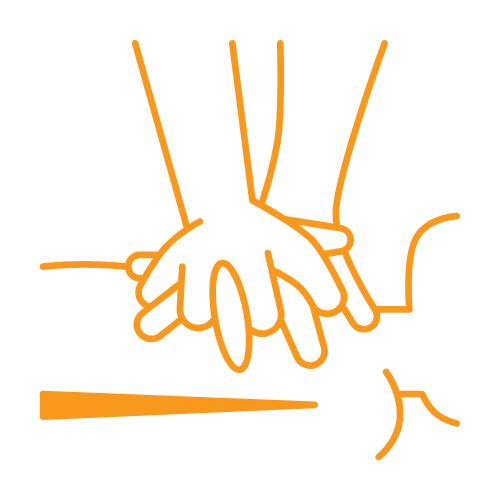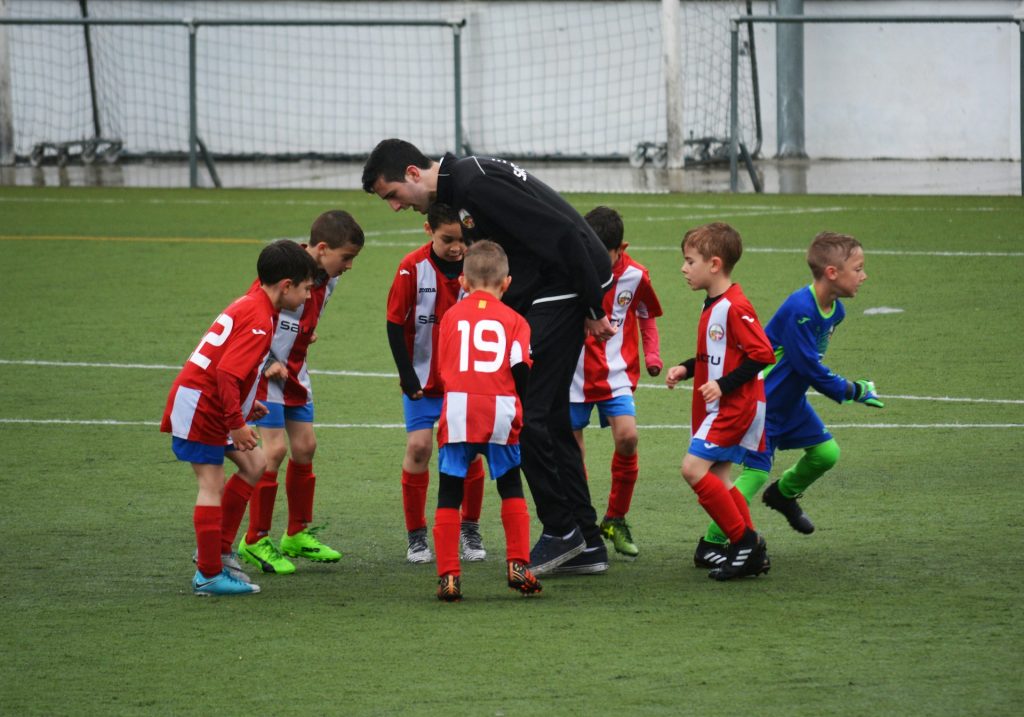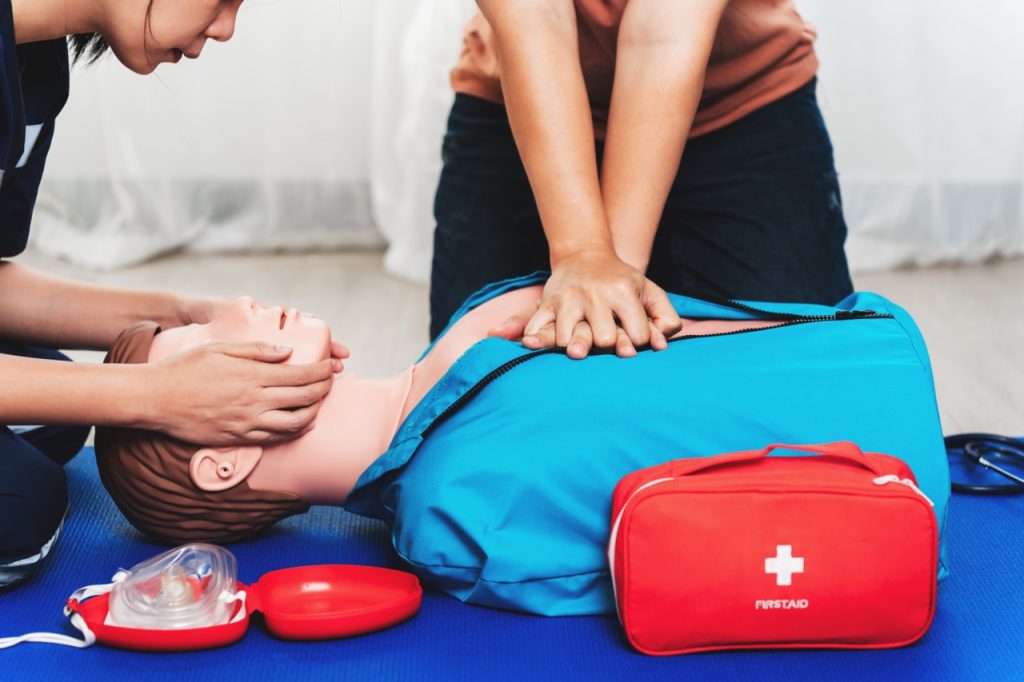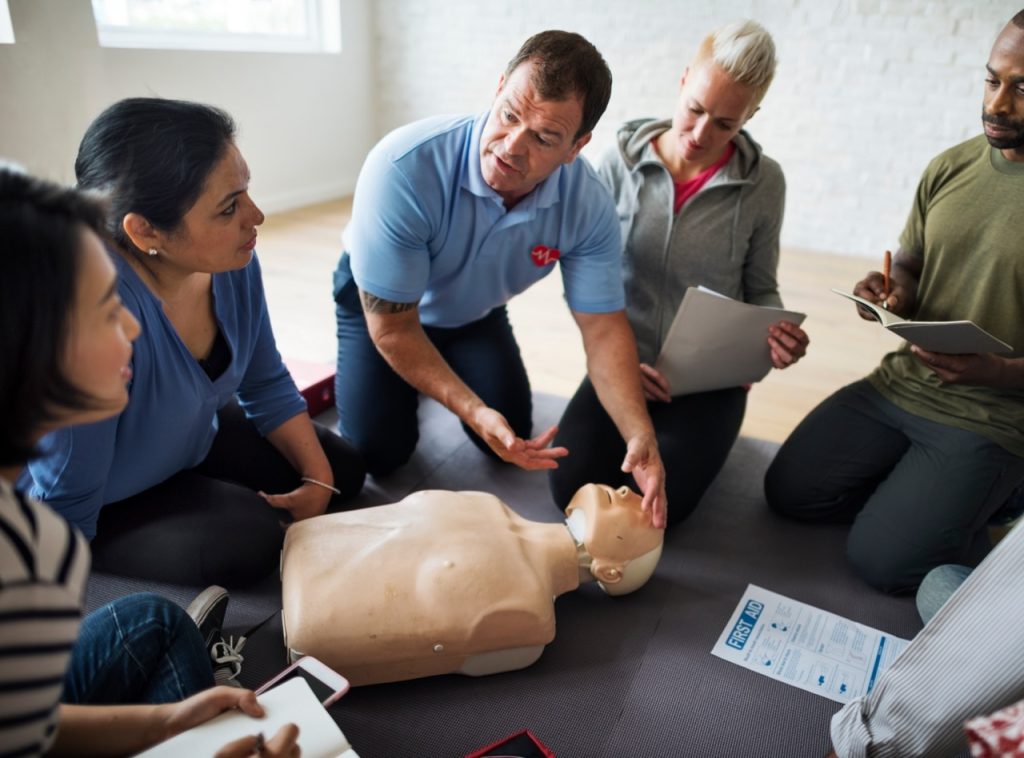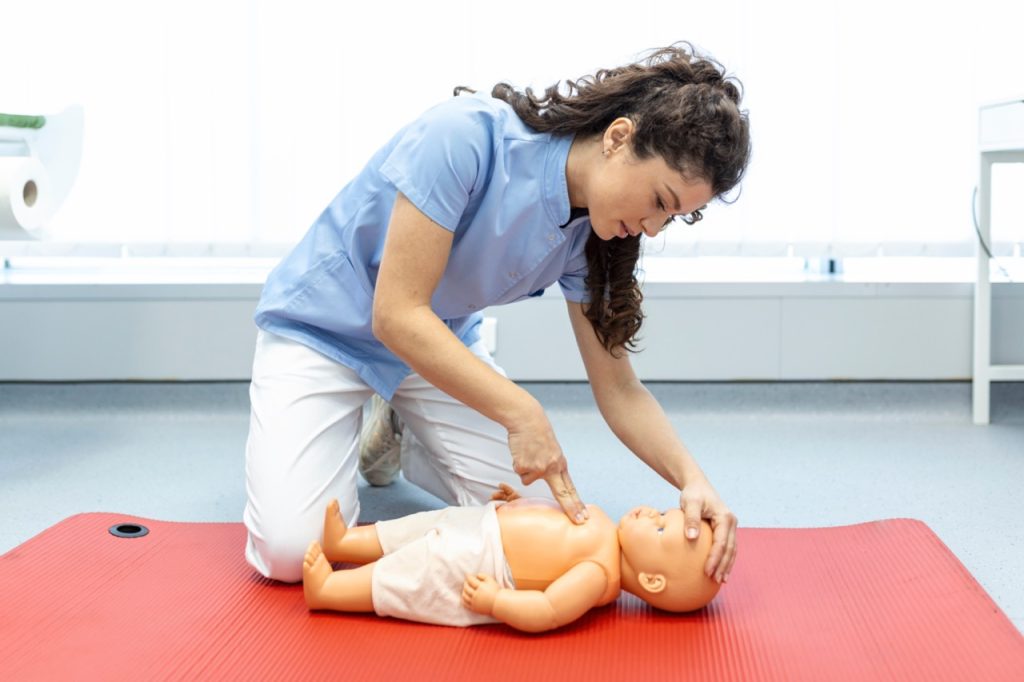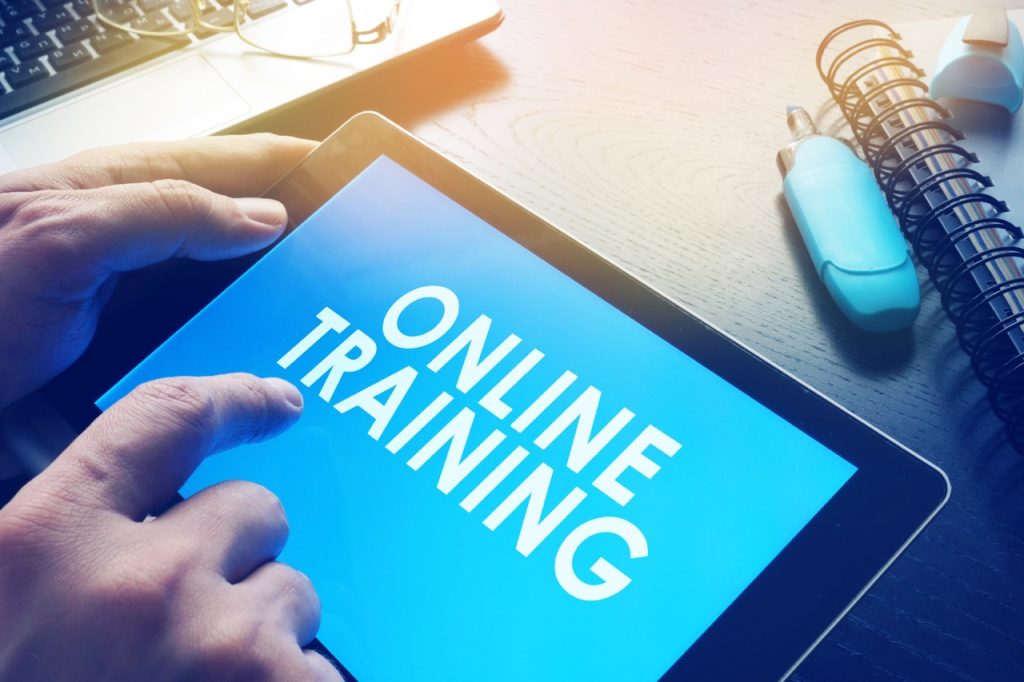The difference between life and death at work shouldn’t come down to luck.
Picture this: A colleague collapses at their desk. Hearts racing, everyone freezes, and no one really knows what to do. Their heart has stopped, and with every passing minute without help, their chance of survival drops by 10%. Someone yells, “Where’s the AED?” Blank stares. Turns out, only half of employees even know where to find one.
This scenario plays out 10,000 times a year in American workplaces, according to the U.S. Occupational Safety & Health Administration. Ten thousand cardiac arrests. Ten thousand moments where someone’s life hangs in the balance. Ten thousand chances to be a hero, or to stand there wishing you knew what to do.
It doesn’t have to be this way. Group CPR training can help turn your team from bystanders into lifesavers in situations like this. Here’s why every workplace needs it.
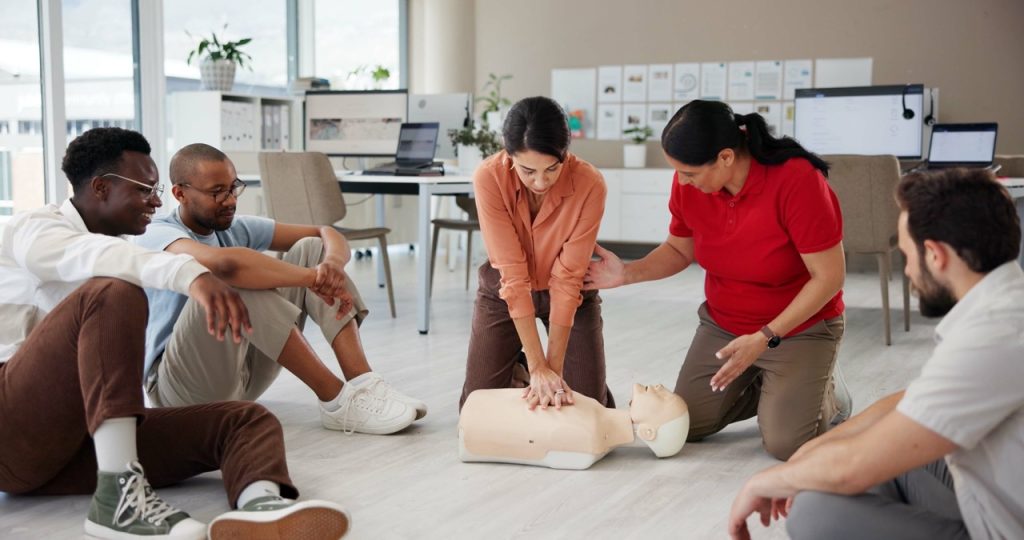
Why Every Workplace Should Offer Group CPR and First Aid Training
Medical Emergencies Happen at Work
The truth is, a medical emergency in the form of an accident, injury or a cardiac arrest can happen really anywhere and to anyone. But because most individuals spend at least 40 hours a week at work, it is the second most common place for an emergency situation to occur.
Certain work environments and industries are more susceptible to experiencing medical emergencies. Industries such as construction, manufacturing, industrial sectors, warehousing, transportation, and agriculture all involve the use of machinery, heavy equipment, or physical activity that can lead to accidents or unintended emergencies.
In the fitness industry, there is an increased risk of cardiac arrest and overexertion injuries.
In food service, burns, cuts, and other injuries occur frequently in fast-paced kitchen environments.
In retail environments, slip-and-fall accidents, overexertion from lifting, and customer medical emergencies can happen unexpectedly.
Training can make all the difference in an effective, immediate response before emergency services arrive.
Faster Response Saves Lives
It’s not just knowing what to do in an emergency situation, but the fact of the matter is, in these scenarios, time can make all the difference. Trained employees are more adept at acting confidently and quickly, and providing CPR or first aid and early intervention can greatly reduce long-term bodily damage or even death.
Related: 4 Reasons to Offer CPR Training to Employees
Businesses That Benefit from Group CPR Training
Businesses and organizations of all kinds will find value in providing group CPR and first aid training to their staff, employees and teams. Some that are well suited for this option include:
- Offices
- Manufacturing facilities
- Schools and childcare centers
- Gyms, fitness centers, and sports facilities
- Dental, vision and other healthcare clinics
- Warehouses and retail environments
How to Organize CPR Training for Your Employees
Benefits of Group CPR Training for Employers
Improved Workplace Safety
Regularly offering CPR and first aid training to your team of employees helps create a safer environment for employees, customers and visitors. CPR training can help support broader safety and emergency preparedness goals.
Cost-Effective Training Solution
Group CPR and first aid training is more efficient than individual certifications in terms of both time and costs. HeartCert’s trainings are scalable for small teams or large organizations.
Boosts Employee Confidence and Morale
Companies that offer CPR and first aid training help their employees feel empowered to help in emergency situations both in the workplace, at home and in public.
Organizations who provide CPR and first aid training to their staff are doing more than improving outcomes in emergencies; they are demonstrating to their employees that their lives and safety matters.
Group CPR, First Aid, and OSHA Training with HeartCert
Meet Compliance and Safety Requirements
Certain businesses and industries are required to complete routine training and courses for compliance and safety requirements. For these businesses, partnering with a provider that offers OSHA training is essential.
At HeartCert, we offer OSHA training for general industry, construction industry, hazardous materials transportation, forklift training and more.
Find out more about the OSHA trainings we offer.
Flexible Training Options for Businesses
Group CPR and first aid training with HeartCert provides flexible options to work for your organization and staff’s schedules. Our on-site training can be scheduled when it’s convenient for your business, either as a one-time event for large groups or in several groups scheduled around shifts for smaller teams to attend. Whatever works best for your company and team, we can accommodate so everyone can get the proper training they need.
Expert Instruction and Real Results
At HeartCert, we’re committed to supporting organizations that prioritize CPR and first aid training for their teams. Our experienced instructors bring real-world expertise to every session, providing the perfect balance between professionalism and approachability. We deliver engaging, interactive sessions that keep participants involved while providing practical, actionable skills your workplace can rely on. So whether you’re needing training for a small team or an entire department, we can customize our approach to meet your organization’s unique needs.
Schedule CPR and First Aid Training For Employees
When you invest in CPR training for your employees, it can be more than just a step towards compliance; it’s a way of showing a commitment to their safety and well-being. CPR-certified employees can be the difference between tragedy and survival in a workplace emergency. Make preparedness a priority today, not a regret tomorrow. Partner with HeartCert to set up group training sessions that give your team both the expertise and confidence to step up when lives are on the line.
Sources:
https://cpr.heart.org/en/resources/cpr-facts-and-stats
https://www.dol.gov/newsroom/releases/osha/osha20160317
HeartCert is your trusted training partner for CPR, ACLS, PALS, EMR, First Aid, CNA, TMA, IV, EKG and more, throughout the United States.
Courses include CPR/AED/First Aid, Basic Life Support (BLS), Advanced Cardiac Life Support (ACLS), Pediatric Advanced Life Support (PALS), Certified Nursing Assistant training, IV training, EKG training, babysitter basics and more. Courses and certifications from both the American Heart Association and American Red Cross are available. We offer virtual courses and certifications, in all 50 states as well as in-person classes at our headquarters, HeartCert CPR Eagan and major cities in Iowa, Illinois, Michigan, Minnesota, Missouri, Mississippi, Nebraska, Pennsylvania, Texas and Wisconsin.

